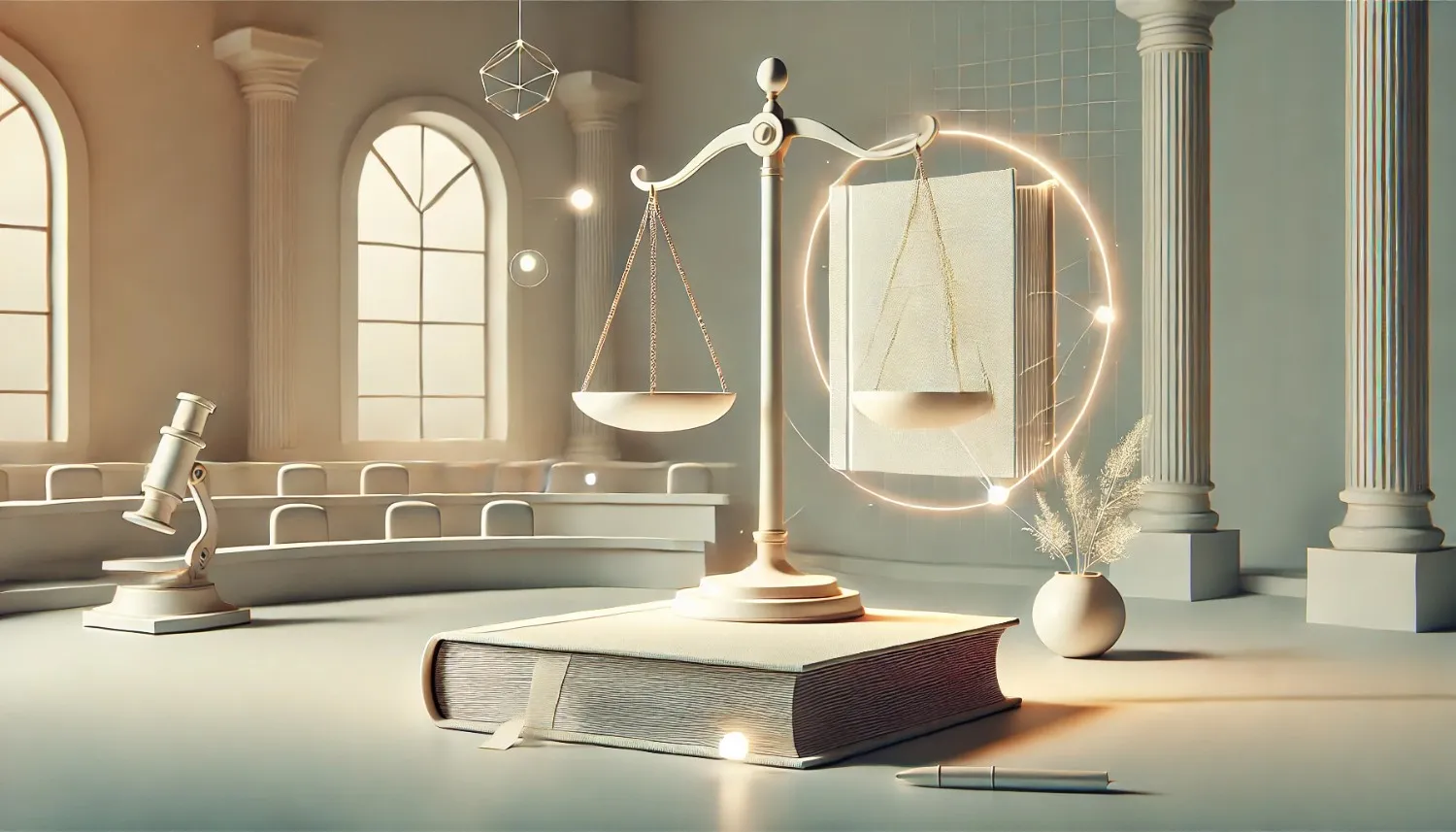Overview
A Well-Known Organization Providing Spiritual And Metaphysical Education To Anyone Interested In Studying Energy Work, Alternative Health, And Personal Development Is The University Of Metaphysical Sciences Lawsuit. But Over The Years, UMS Has Encountered Legal Issues, Just Like Many Other Organizations. The Case That Raised Concerns About The University’s Management, Rules, And Program Quality Is One Noteworthy Legal Matter. The Specifics Of The UMS Case, The Individuals Concerned, The Main Accusations, And The Ramifications For Students, Teachers, And The Larger Metaphysical Community Are All Examined In This Article.
The University Of Metaphysical Sciences: What Is It?
Offering A Range Of Online And Distance Learning Programs With A Focus On Metaphysics, Energy Healing, Spiritual Counseling, And Allied Subjects, The University Of Metaphysical Sciences Lawsuit Is A Private Institution. The Institution Was Established In The Latter Half Of The 20th Century With The Goal Of Giving Students Thorough Instruction In Spiritual Practices So They May Work As Spiritual Advisors Or Holistic Healers For Others.
In Fields Like Spiritual Studies, Alternative Medicine, Metaphysical Science, And Esoteric Arts, UMS Provides Degrees, Certifications, And Diploma Programs. The University Markets Its Curriculum, Which Emphasizes Personal Growth And The Mind-Body-Spirit Link, As An Alternative To Traditional Schooling.
Although Metaphysical Studies Are Becoming More And More Popular, The University’s Legal Issues Have Cast Doubt On Its Legitimacy, Financial Management, And Teaching Methods.
An Overview Of The University Of Metaphysical Sciences Lawsuit
In [Insert Year], [Insert Party Or Group Engaged] Filed A Lawsuit Against The University Of Metaphysical Sciences, Claiming [Insert Key Charges]. Issues With The University’s Marketing Strategies, Program Accreditation Fraud, And The Validity Of The Degrees It Offered Were The Main Focus Of The Case. The Lawsuit Aimed To Resolve Allegations That The University Had Deceived Students About The Worth Of Their Degrees And Had Failed To Meet The Required Educational Requirements.

Principal Claims In The Case
1. Falsifying The Status Of Accreditation
The Lawsuit’s Main Claims Were That UMS Had Misrepresented The Programs’ Accreditation Status. An Important Determinant Of An Educational Institution’s Credibility Is Its Accreditation. Students Are Frequently Misled Into Thinking That Employers Or Other Organizations Will Accept An Authorized Degree Or Certificate. According To The Lawsuit, UMS Lacked The Required Certification From Reputable Educational Organizations, And Its Degrees And Certificates Were Worthless In Conventional Academic Or Professional Contexts.
2. Deceptive Marketing And False Advertising
UMS Was Also Charged With Deceptive Advertising In The Lawsuit. The University Was Accused Of Inflating The Earning Potential And Employment Prospects For Graduates By Implying That The Degrees Would Result In Lucrative Careers In The Metaphysical Sciences. Given The Non-Traditional Nature Of The Sector And The Absence Of Recognized Certification, Plaintiffs Contended That These Representations Were Deceptive. After Completing The Program, A Few Students Expressed Dissatisfaction With The Degrees’ Usefulness.
3. Inequitable Business Conduct
UMS’s Commercial Activities Were Another Area Of Dispute In The Litigation. The Plaintiffs Claimed That By Charging Exorbitant Tuition Costs Without Fulfilling The Commitments Made During The Enrolling Process, The University Was Taking Advantage Of Weaker Pupils. Students Specifically Claimed That They Were Not Getting The Kind Of Instruction Or Assistance That Had Been Promised, Which Sparked Claims Of Financial Abuse.
4. Lack Of Support And Academic Quality
The Lawsuit Also Raised Concerns About UMS’s Educational Standards And Degree Of Student Support. According To The Graduates, The Programs Lacked Purposeful Learning Opportunities And Were Badly Designed. After Graduation, Some Students Said They Had Trouble Getting In Touch With Their Teachers, Getting Feedback On Their Work, Or Getting Employment Advice.
The Court Cases
Pre-Trial Motions, Discovery, And Depositions Were Among The Stages Of The Legal Battle Surrounding The UMS Lawsuit. Evidence About The University’s Marketing Materials, Program Curriculum, And Student Comments Was Provided By Both Sides.
1. The First Lawsuit Filed
A Group Of Students Who Believed They Had Been Duped By UMS’s Marketing Materials And Assertions On The Worth Of Its Programs Initially Brought The Lawsuit. The Plaintiffs Sought Monetary Damages For Tuition And Other Fees They Suffered As A Result Of Enrolling. Additionally, They Sought To Hold The University Responsible For Its Purportedly Dishonest Actions.
2. UMS’s Defensive Arguments
In Response, UMS Defended Itself By Claiming That It Had Not Deceived Students In Any Manner And That Its Programs Were Genuine. The University Argued That Its Courses Were Suitable For Anyone Looking For Alternative Career Choices And That It Provided A Worthwhile Education In The Metaphysical Sciences. Additionally, UMS Contended That Because Its Programs Were Non-Traditional, They Were Exempt From The Same Accrediting Standards As Regular Universities.
3. Findings And The Collection Of Evidence
Evidence Was Shared Between The Parties During The Discovery Process. Testimonials From Previous Students Who Believed They Had Been Duped Were Obtained By The Plaintiffs. These Testimonies Included Remarks Regarding The Alleged Dearth Of Career Opportunities After Graduation. To Show That It Had Behaved In Good Faith, UMS, On The Other Hand, Produced Proof Of Its Marketing Materials, Faculty Credentials, And Curriculum.
4. Negotiations For Settlements
Instead Of Going To Trial In Many Cases, Parties May Decide To Negotiate A Settlement. Finding A Compromise That Would Allow The Plaintiffs To Obtain Some Compensation While Allowing UMS To Continue Functioning Without Additional Financial Disaster Was Apparently The Main Goal Of The Settlement Talks In The UMS Lawsuit. The Public Has Not Yet Been Fully Informed Of The Settlement’s Details, Including Whether Or Not The University’s Curriculum Or Accreditation Status Were Altered.

Effects On The Education Community And Students
Both Present And Former UMS Students As Well As The Larger Metaphysical Education Community Were Significantly Impacted By The Litigation. After Spending A Lot Of Time And Money On Their Degrees, Many Students Were Left To Wonder If Companies Would Value Or Recognize Their Education. A Wave Of Annoyance And Mistrust Toward The Organization Resulted From This.
1. Affected Students And Graduates
The Lawsuit’s Outcome Demoralized A Lot Of Youngsters. Finding Employment In The Metaphysical Sector Was Difficult For Those Who Had Finished Their Education At UMS Because Employers And Clients Frequently Did Not Know About The University. Because They Had Spent Time, Money, And Effort On Programs That Were Later Shown To Be Insufficient In The Legal Environment, Graduates Were Forced To Wonder About The Value Of Their Degrees.
2. Effect On The Community Of Metaphysics
The Litigation Had A Negative Impact On The Field Of Metaphysical Education In General. The Legitimacy Of Unaccredited Organizations Providing Spiritual Or Alternative Health Programs Was Called Into Question. A Lot Of People In The Metaphysical Community Were Concerned That The Case May Make Comparable Schools More Scrutinized, Which Could Impede The Expansion Of Alternative Education.
3. Industry Shifts And Regulatory Examination
Regulatory Agencies And Accrediting Authorities Started To Examine Non-Traditional Educational Institutions More Closely As A Result Of The Lawsuit And The Larger Discussion Around The Validity Of Metaphysical Degrees. Institutions That Offer Metaphysical Or Alternative Programs Are Now Required By Some States And Regions To Make Explicit Disclosures Regarding Their Accrediting Status And The Worth Of Their Degrees.
In Conclusion
The Case Against The University Of Metaphysical Sciences Lawsuit Serves As A Warning About The Dangers Of Attending Non-Traditional Educational Institutions. Even If Metaphysical Science Has Become More Well-Known And Popular, Potential Students Should Always Do Their Homework And Thoroughly Evaluate The Authenticity Of Any School They Want To Enroll In. The Lawsuit’s Verdict Has Had A Long-Lasting Impact On The Institution And The Field Of Metaphysical Education, Prompting A Reevaluation Of The Requirements And Criteria For Alternative Education Programs.
